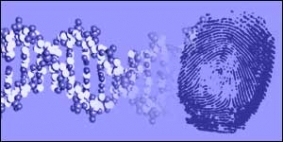
DNA testing the whole population could help combat serious crime, according to the UK scientist who discovered genetic finger-printing.
Professor Sir Alec Jeffreys, who devised the system to identify criminals from the unique characteristics of their genes, has changed his mind about the human rights implications of a universal DNA database.
"When this idea was first put forward about 10 years ago, I had considerable concerns over civil liberties issues," he told the BBC's Midlands Report documentary.
"On reflection, I'm now actually in favour of this.
"I think the potential of this database to prosecute serious crime, to save the lives and the misery of future victims is very substantial."
Professor Jeffreys, 51, from the University of Leicester, said the technology existed to make a DNA database of the 60 million citizens who make up the UK.
Expanding database
Between 700 and 800 samples from crime scenes are matched to a name from the existing database each week.
The government is spending �143m to triple the size of the National DNA Database, which already holds more than one million samples from suspects who are charged, reported, cautioned or convicted for a recordable offence.
Samples taken from anyone eliminated from a criminal investigation must also be removed from the database.
Since 1995, 150,000 samples have been deleted and destroyed.

The DNA database at the Forensic Science Service laboratory
But the details of innocent people will soon be stored on the database under changes to the law proposed by Home Secretary Jack Straw in the Criminal Justice and Police Bill last month.
Samples, including those taken under duress from suspects without their consent, could be kept.
The Bill would also permit samples given voluntarily in mass DNA screenings to be retained.
James Welch, legal director of human rights group Liberty, told the BBC documentary that the group strongly opposed a universal DNA database.
"This is very personal information over which ultimately you have no control," he said.
"People are developing new uses of DNA material so, effectively, you are asking people to give information about themselves when they don't know how that information will be used in the future."
"This is very personal information over which ultimately you have no control" - James Welch, Liberty
Source: bbc.co.uk






